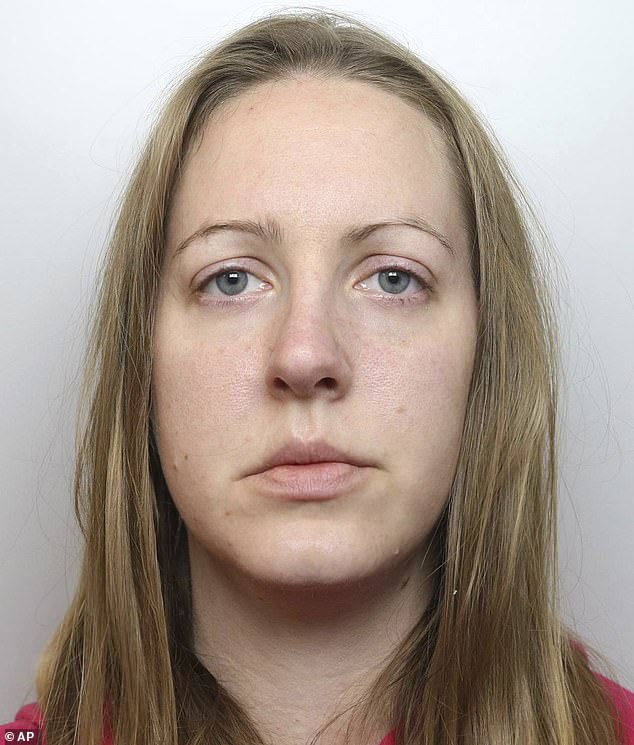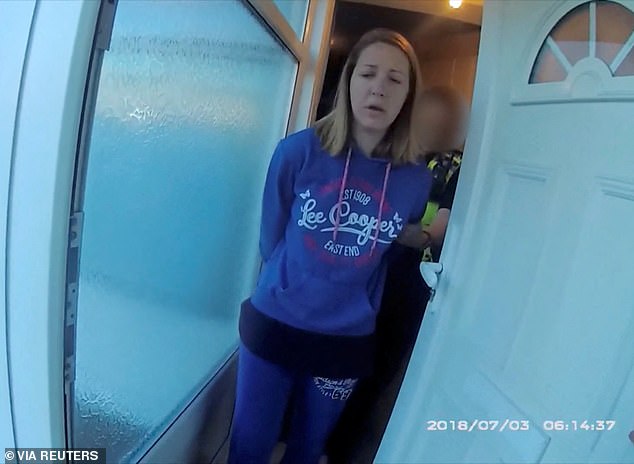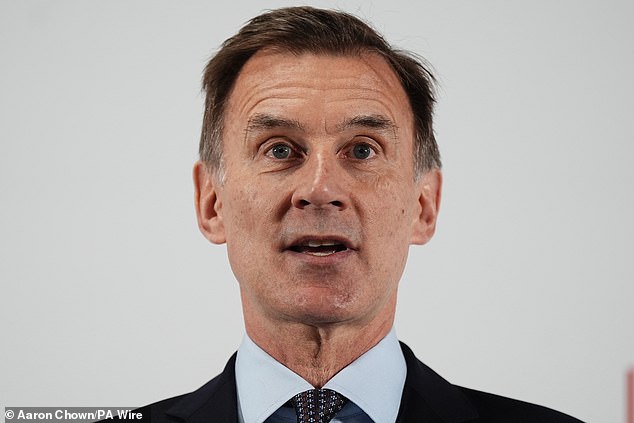Few criminal cases in modern British history have played on the public conscience quite like that of Lucy Letby. A neonatal nurse convicted of the worst betrayal of trust possible: the deliberate harming and killing of babies under her care.
Letby’s case stands alongside that of the GP Harold Shipman – who was sentenced to 15 life terms for murdering 15 patients but is thought to have killed at least 215 people in all – as one of the darkest moments in the history of the NHS.
I was Health Secretary when many of the deaths attributed to Letby occurred at the Countess of Chester Hospital in Cheshire and, earlier this year, I gave evidence at the public inquiry set up to examine the issue.
I agonised publicly over whether lessons from earlier scandals should have been learned more quickly, and apologised to families for any delays.
So let me be clear from the outset: I am not arguing that Letby is innocent. That is not my place. I believe in the separation of powers. It must never be the role of any politician to second-guess the outcome of any court decision, let alone a jury trial.
The pain endured by the families affected must also be at the forefront of our minds. Their suffering is beyond our comprehension and they deserve compassion, respect and ongoing support.

Lucy Letby was found guilty of killing seven babies in their cots and attempting to kill seven more between June 2015 and June 2016
But most of all they deserve the truth. And recently some have begun to cast doubt on what actually happened. Were those tragic deaths caused by an evil woman or were they the result of medical error?
As someone who has campaigned for more than a decade to reduce avoidable death, that matters to me.
If Letby really did kill seven babies in their cots and attempted to kill seven more, no punishment short of the death penalty is too harsh. But if they were caused by professional shortcomings, we need to know why.
More than anything else we need to make sure other families don’t have to go through the same tragedy.
I have now read a wide range of expert concerns about the conduct of the Letby criminal case. These included detailed analysis from senior clinicians, expert statisticians, legal professionals and patient safety advocates. They are not conspiracy theories dredged up from far-flung reaches of the internet.
Rather it is the calm, forensic analysis of experts such as Dr Mike Bewick, a former NHS England deputy medical director, whom I worked with personally when I was Health Secretary.
He has no personal stake in the outcome but, like others, has become concerned that the criminal justice system may not be meeting the standards we need in this and other health-related cases.
Perhaps the most disturbing new evidence has come from a panel of 14 paediatric specialists and neonatologists convened by Dr Shoo Lee, a distinguished emeritus professor from the University of Toronto.
Its experts included Neena Modi, a professor of neonatal medicine at Imperial College London, and Ann Stark, professor in residence of paediatrics at Harvard medical school.

Letby is arrested at her home in July 2018. She worked as a neonatal nurse at the Countess of Chester hospital
Its report concluded that there was ‘no medical evidence to support malfeasance causing death or injury in any of the 17 cases in the trial’, adding: ‘Death or injury of affected infants were due to natural causes or errors in medical care.’
Taken together – and it pains me to say it – this analysis raises serious and credible questions about the evidence presented in court, the robustness of expert testimony and the interpretation of statistical data.
That is why I and parliamentary colleagues such as Sir David Davis now believe the time has come for these concerns to be addressed as a matter of urgency.
The good news is that Lucy Letby’s case is already in the hands of the Criminal Cases Review Commission (CCRC), the independent organisation that investigates potential miscarriages of justice and the only body that has the power to refer a case to the Court of Appeal.
The bad news is that the CCRC is hopelessly dysfunctional. In the case of Andrew Malkinson, who served 17 years for a rape he didn’t commit, it dithered for a decade over whether to conduct the DNA tests on samples taken from the victim that ultimately proved his innocence.
It was the same story with Peter Sullivan, who was dubbed the Beast Of Birkenhead, who spent 38 years behind bars for the murder of a 21-year-old barmaid.
The forensic technique that proved he was not the perpetrator became available in 2013 but the commission waited until 2021 to order proper tests. And it would be another four years before he was acquitted.
As the Mail reported in May, the CCRC’s chief executive presides over a work-from-home culture that is so extreme most of its employees show up at its headquarters once or twice a year.
No less a figure than the ex-Justice Secretary Lord Falconer has described the commission as ‘unled and generally regarded as useless’, while Lord Garnier, a former Solicitor General, told one interviewer it was in ‘a state of complete collapse’.

Few criminal cases in modern British history have played on the public conscience quite like that of Lucy Letby, writes former health secretary JEREMY HUNT
With the Letby case attracting so much attention, it’s vital that the CCRC gets its act together under its new interim chair Dame Vera Baird, who took up her post last week. The integrity of our justice system is not the only issue. We owe it to the public, the families affected and the NHS to be absolutely sure that the convictions were sound, the process was fair and the evidence met the threshold we expect in any case – especially one of this gravity.
Why is this so urgent? Not just because of the paramount importance in our system that convictions should be safe. But because the ongoing uncertainty over the case is distracting us from one of the most urgent challenges facing our health service at the moment, namely the fact that every day in England we have around three baby deaths and five stillbirths.
That shocking number was going down until the pandemic but has now started nudging up and families up and down the country are waiting for answers from the Government about what it plans to do.
While there is such a high degree of speculation about the potentially unfair prosecution of a healthcare professional, others will feel much more nervous about coming forward about mistakes they may have made. Lessons will not be learned and more babies will die.
Justice must be done and seen to be done. And that means the CCRC has to speed up their normally painfully slow process.
None of this should diminish the compassion we owe the families who have already suffered so much.
Re-examination of the evidence is not a denial of their pain. But it will ensure that all of us can have confidence that the truth has been reached through a rigorous and fair process.
And if medical error was the cause, we can then make sure no more babies die from the same mistakes.
Jeremy Hunt is a former Secretary of State for Health and Social Care (2012–2018) and chair of the all-party parliamentary patient safety group.












